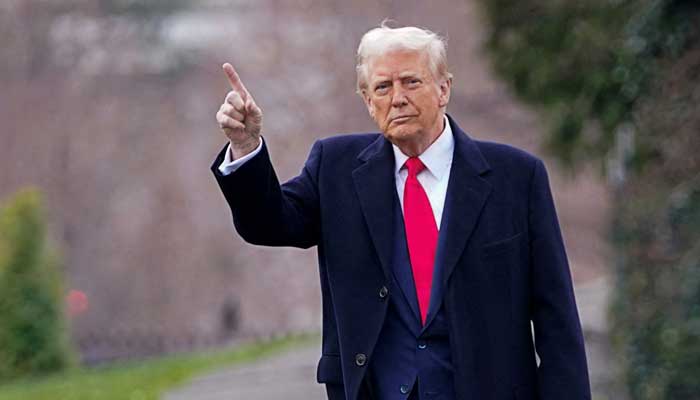WASHINGTON / DUBAI / JERUSALEM: President Donald Trump has refused to rule out U.S. military involvement in Israel’s ongoing air campaign against Iran, intensifying global uncertainty amid escalating tensions in the Middle East.
Speaking to reporters outside the White House, Trump remarked, “I may do it. I may not do it. Nobody knows what I’m going to do.” The comments came as Israeli airstrikes entered their sixth consecutive day, forcing thousands to flee Tehran and sparking urgent international diplomatic efforts to contain the spiraling conflict.
Despite his ambiguous stance, Trump revealed that Iranian officials had requested talks in Washington. “We may do that,” he said, before adding, “It’s a little late.”
Diplomatic Push and Military Calculations
European powers are scrambling to defuse the crisis. According to a German diplomatic source, the foreign ministers of Germany, France, and Britain will meet their Iranian counterpart in Geneva on Friday, in coordination with Washington, to seek firm assurances on the peaceful intent of Iran’s nuclear program.
Amid the uncertainty, The Wall Street Journal reported that Trump had reviewed U.S. military plans targeting Iran but had withheld final approval to see whether Tehran would abandon its nuclear pursuits.
When asked if he believed Iran’s government could fall due to the ongoing Israeli offensive, Trump responded, “Sure, anything could happen.”
Trump also noted that the U.S. is uniquely capable of dismantling Iran’s Fordow enrichment site—buried deep beneath a mountain in Qom—but said that didn’t mean he intended to act.
Khamenei Issues Stern Warning
In a televised speech, Iran’s Supreme Leader Ayatollah Ali Khamenei delivered a stern rebuttal, declaring that the Iranian nation would not yield under pressure. “The Americans should know that any U.S. military intervention will undoubtedly bring irreparable damage,” he said.
Khamenei’s appearance marked his first public remarks since Friday and followed mass evacuations from Tehran. Traffic jams clogged escape routes as residents sought refuge from Israeli bombardment.
Israel Claims Air Supremacy
Israeli Prime Minister Benjamin Netanyahu, in a video address, said his country was striking Iran with overwhelming force, targeting nuclear facilities, missile production sites, and military command centers. “We control the skies over Tehran,” Netanyahu asserted.
He also thanked Trump for his unwavering support, describing him as “a great friend of Israel” and noting that both leaders were in constant contact.
Mixed Messaging from Trump
While occasionally hinting at diplomacy, Trump’s social media statements have added to the confusion. On Tuesday, he floated the idea of targeting Khamenei, then demanded Iran’s “UNCONDITIONAL SURRENDER!” According to sources familiar with internal discussions, the Trump administration is actively weighing whether to join Israeli strikes on Iran’s nuclear infrastructure.
Iran’s mission to the United Nations mocked Trump, referring to him as “a has-been warmonger clinging to relevance” in a series of posts on X (formerly Twitter).
Ground Realities: Missiles, Casualties, and Evacuations
Israel says it has launched multiple waves of airstrikes within the past 24 hours, hitting missile factories and military targets in and around Tehran. Iranian reports indicate at least 224 fatalities, mostly civilians, though no updated figures have been released for days.
Inside Iran, government censorship has intensified, with state media ordered to restrict images of destruction and a ban on public filming imposed. Internet access has also been curtailed to prevent what authorities describe as “threats to citizen safety.”
Meanwhile, Iran’s ability to retaliate has been constrained due to the weakening of key regional allies such as Hamas and Hezbollah, following Israel’s prior military campaigns in Gaza and Lebanon.
Fear and Flight
In Tehran, many residents are fleeing. “My friend’s house was bombed, and her brother was injured,” said Arezou, a 31-year-old who had fled to the nearby town of Lavasan. “Why are civilians paying the price for nuclear ambitions?”
In Israel, air raid sirens have become a grim routine. Although missile defenses have intercepted most Iranian rockets, 40 have struck targets, killing 24 civilians.
Train stations and public shelters are overwhelmed. “I’m terrified,” said Tamar Weiss, a mother sheltering in Ramat Gan. “We live in old buildings without shelters. I’m holding my baby and hoping for the best.”
Oil and Global Stakes
Iran has hinted it could leverage control over the Strait of Hormuz—through which a third of global oil flows—as a bargaining chip. Analysts warn that any disruption could send shockwaves through global energy markets.
An aircraft carrier from the U.S. Indo-Pacific Command is reportedly en route to the region, while U.S. military forces have already begun relocating from vulnerable bases in Bahrain and Qatar to more secure positions.
A senior U.S. official summed it up: “Force protection is the priority. But everything else is still on the table.”




